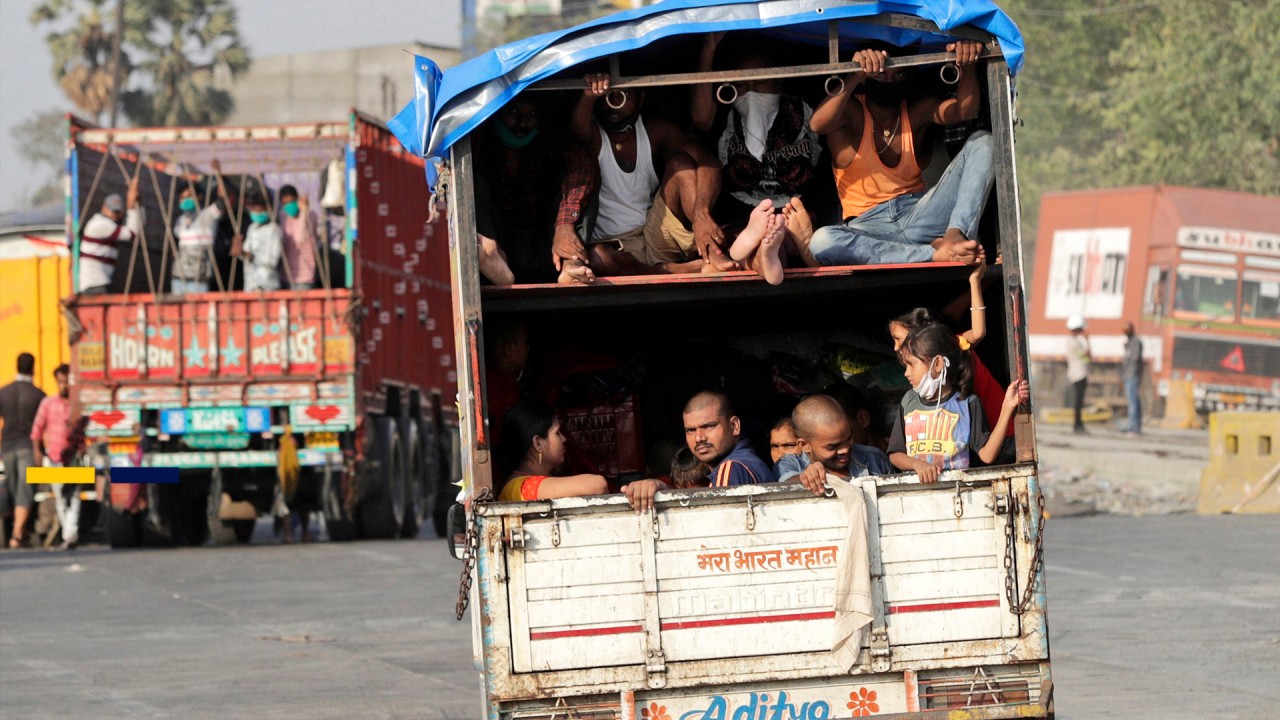
Indian worker exodus from the Gulf is a chance to wean the economy off remittances
- The plunge in remittances will hurt but this is an opportunity for India to reverse its brain drain, retrain for new jobs in e-commerce and boost its infrastructure sector to create jobs, answering Modi’s call for a self-reliant India
India’s reserve bank governor recently announced that the nation’s economy is expected to contract in 2020-2021 because of the coronavirus pandemic. This is no surprise with the country facing severe economic headwinds.
What is the likely impact of the drop in remittances?

03:35
Coronavirus: India’s migrant workers desperate to return home after lockdown
First, it will put a huge strain on the exchequer when the government is already allocating additional resources to fight Covid-19. Remittances from the Gulf account for almost 55 per cent of the total to India.
And third, it will be a challenge to get these expatriate workers suitably employed after their return, when many sectors are already seeing job cuts.

01:22
Worst locust attack in decades devastates Indian crops amid coronavirus pandemic
New Delhi is caught between a rock and a hard place on the economic front, like many other countries, especially those that depend on remittances.
One way for India to make the best of this situation would be to create more jobs in new and emerging sectors such as e-commerce, which is likely to see huge growth post-pandemic.
How India could power the post-pandemic global growth engine

05:02
Coronavirus backlash further fraying China’s ties to global economy
The big challenge will be in re-employing Indian expatriate construction workers, since there are not enough jobs in this sector. New Delhi needs to provide a big boost to the infrastructure sector, which can help kick-start the economy in the post-pandemic era.

05:59
Coronavirus: How badly is Covid-19 disrupting the oil industry in the US and beyond?
Indeed, India must move away from relying so much on Gulf remittances. New Delhi will have to find innovative ways to tackle these challenges. Such times call for out-of-box thinking.
Dr Rupakjyoti Borah is a senior research fellow with the Japan Forum for Strategic Studies, Tokyo. His books include The Elephant and the Samurai: Why Japan Can Trust India and Act-East via the Northeast. The views expressed here are personal

